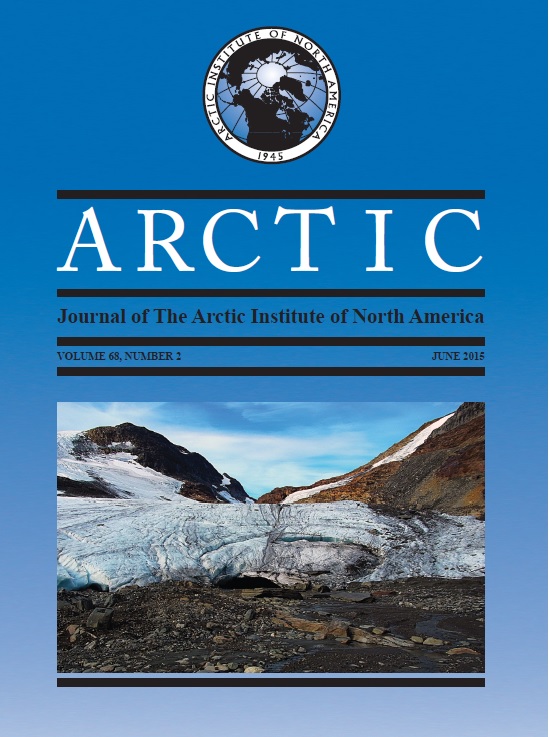Inuit Traditional Ecological Knowledge (TEK) Subsistence Hunting and Adaptation to Climate Change in the Canadian Arctic
DOI:
https://doi.org/10.14430/arctic4475Keywords:
adaptation, Inuit, Inuit Qaujimajatuqangit (IQ), resilience, traditional ecological knowledge (TEK), subsistence hunting, vulnerabilityAbstract
This paper examines the role of Inuit traditional ecological knowledge (TEK) in adaptation to climate change in the Canadian Arctic. It focuses on Inuit relationships with the Arctic environment, including hunting knowledge and land skills, and examines their roles in adaptation to biophysical changes that affect subsistence hunting. In several instances, TEK underpins competency in subsistence and adaptations to changing conditions, which includes flexibility with regard to seasonal cycles of hunting and resource use, hazard avoidance through detailed knowledge of the environment and understanding of ecosystem processes, and emergency preparedness, e.g., knowing what supplies to take when traveling and how to respond in emergency situations. Despite the documented importance of TEK in adaptation and in maintaining a level of competency in subsistence, the relationships between TEK and adaptation to climate change are not well defined in the scholarly literature. This paper aims to conceptualize the relationships between TEK and adaptation to climate change by drawing on case study research with Inuit in the Canadian Arctic. TEK is considered an element of adaptive capacity (or resilience) that is expressed as adaptation if TEK is drawn upon to adapt to changing conditions. This capacity depends on the development, accumulation, and transmission of TEK within and among generations.Downloads
Download data is not yet available.


